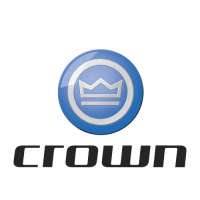321
M7.0-1055-001
02 Rev. 5/08
LIFTING MECHANISM
Mast
Mast
Wear appropriate items, such as safety glasses and
steel-toed shoes whenever performing maintenance
work. Do not place fingers, hands or arms through
mast or position them at pinch points.
In this section you may be required to lift and block the
truck and mast or raise and lower different components
for removal and installation. Make sure lifting device
and sling are sufficiently rated to withstand the weight
being lifted. Never work under or around a truck that is
not properly secured. Refer to truck Data Plate for truck
weight information.
It will be necessary to disconnect and remove the bat-
tery from the truck, disconnect tilt cylinders from the
mast, disconnect electrical connections and hydraulic
lines. "Control of Hazardous Energy" section provides
information for performing the above procedures along
with some additional information on other procedures
dealing with truck maintenance. This section should be
read and reviewed prior to mast removal, installation
and maintenance as outlined in this section.
Your truck has been built with either a TT or Quad
mast, depending on your particular application.
Torque Requirements
The four M20 screws that secure the mast pivot block
to the power unit must be torqued 550 to 600 Nm (405
to 440 ft lb).
Fork Adjustments
•
With the forks completely lowered and level, adjust
so that the top surface of the fork tip is a maximum
of 12.7 mm (0.5 in) from the floor.
• Maximum fork height is to be within ± 12.7 mm
(±0.5 in) of the fork height specified on the truck
data plate.
Mast Flaking
It is not uncommon for a new mast to appear as if it is
flaking or peeling. This appearance is an indication that
the rollers are seating to the mast channel and is con-
sidered normal. Eventually, this condition will disap-
pear. The grease applied to the channel will retain
these particles.
TT (Triple Telescopic Full Free Lift)
Mast
The TT is a three stage mast assembly providing a high
lift height while maintaining a low collapsed height. The
TT incorporates two mast cylinders and a carriage cyl-
inder. The fork carriage assembly ascends completely
to the top of the mast as the single center cylinder is
completely extended. As the carriage reaches the top
of the mast, it contacts a pair of stops. At this time the
two mast cylinders begins to extended and the Inter-
mediate and inner stage masts begin to ascend. A pair
of lift chains are attached to the bottom of the inner
mast and to the top of the main frame. These lift chains
are routed through pulley assemblies mounted in the
top of the intermediate mast.
The carriage cylinder is mounted to the inner mast with
mounting hardware at the base and to the center cross-
brace. Lift chains are routed from the back of the cylin-
der through a yoke assembly to the back of the car-
riage assembly.
Crown 2007 PF15690-1 Rev. 5/08

